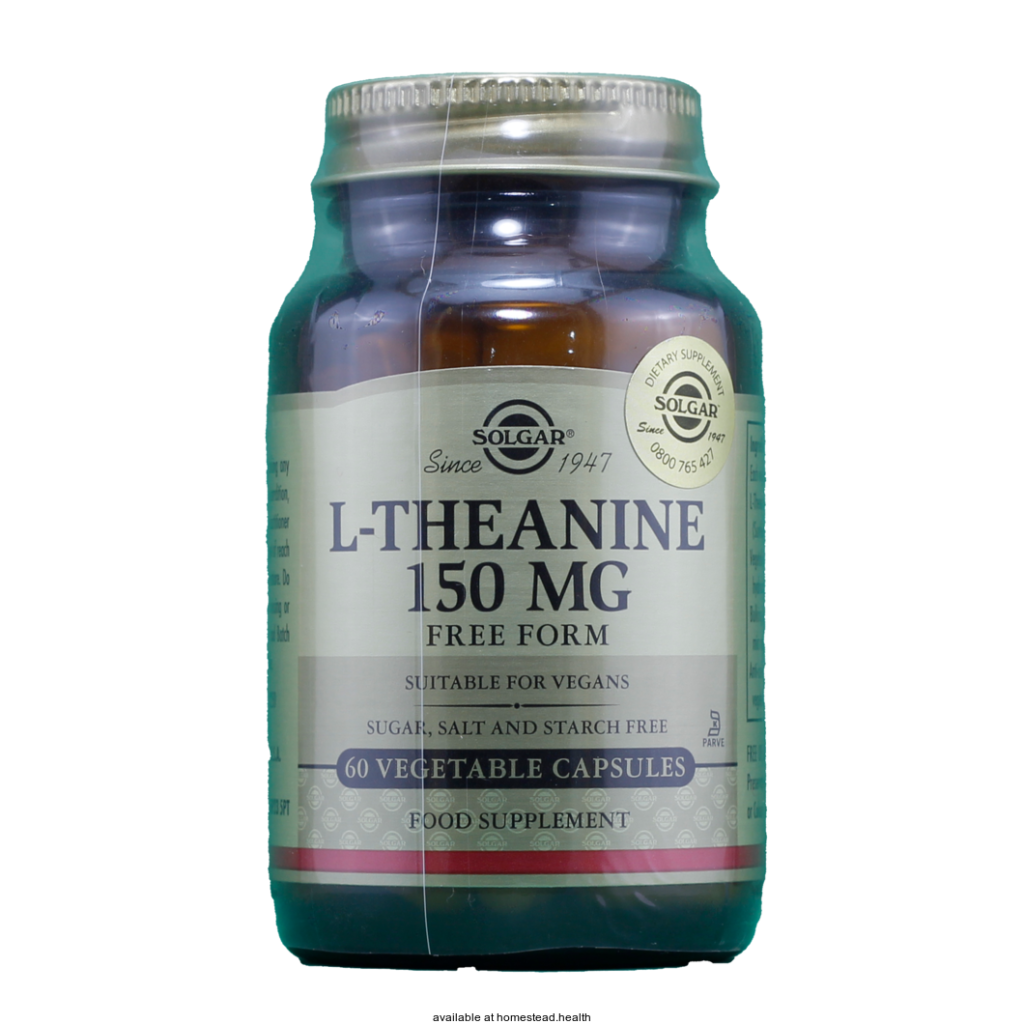Sorry, nothing in cart.
L-theanine may help to reduce stress – that cup of green tea could calm you

In times of uncertainty, many of us are inclined to get more stressed. We have covid rearing is head in the community & the economic and social consequences of this can be very stressful, especially for those with background health issues or work uncertainty. Quite frankly, most people seem to have fairly stressful lifestyles anyway, juggling work, kids, sometimes parents as well, trying to eat well, deal with health issues, exercise & find time to relax …..the list goes on.
In the shop over the last couple of months, we are noticing how many people are coming in feeling very stressed.
Firstly let me say that no supplement or cup of tea can take away the root cause of stress. But L-theanine is one of many tools in the box that can help to reduce stress. If you are very stressed, you need to consider making some lifestyle choices which can make a significant difference. Things like reviewing the way you look at the world (sometimes with help from a counsellor or psychotherapist), eating well including minimising or avoiding those foods (& drinks) that don’t nourish your body, taking some real time out & doing something that restores you, are all things that can make a substantial difference. Cortisol, the key longer term stress hormone, is not designed to be pumping out 24/7 and there are consequences when our stress system goes into overdrive.
As part of the bigger picture, having a cup of green tea L-theanine containing (or taking a capsule) can be beneficial for reducing stress. This is especially true when you take a break to have your drink or capsule.
L-theanine – what is it?
L-theanine is a non protein forming amino acid, which is found almost exclusively in green tea. People tend to know about amino acids for making protein, but less tend to be aware that we also use a number of different amino acids to make hormones and neurotransmitters.
In Japan, arguably the green tea capital of the world, there has been considerable research done on the benefits of green tea, its active components called catechins and also this particular amino acid, L-theanine. Its not entirely clear how it works, although it appears to increase GABA & dopamine (think happy and positive), and act against glutamate (assisting to reduce feelings of anxiety). Overall it has a calming effect, and if taken at the correct dose, promotes feelings of calm & alertness. At a higher dose, it can promote restful sleep, although some people report having unusual dreams when taking L-theanine. If you are interested in the detail, read the references.
One of the benefits of L-theanine, is that in general, it can be taken by those people who are on other mood medications. As is always good practice, it should be taken two hours away from any medications. If you are on medications you should check with your health care provider first.
Tea or tablet?
In short, it depends on the desired outcome & convenience. Green tea contains caffeine, and for those who are sensitive this can have its own issues. Green tea drinkers often report feeling calm and energized, with the L-theanine being responsible for the calm, and predominantly the caffeine provides the energised feelings. Of course you need to drink a well brewed cup or more to experience these benefits.
In the capsule/tablet form, sometimes, but not always, the supplement will come from a patented fermentation process (not from green tea). The resulting Suntheanine is 98% pure & also is generally what has been used in the clinical trials showing the desired changes in mood. The studies tend to be over a number of weeks which show the benefit, but because it acts quite quickly (about 30 minutes) some customers take daily & others just use when they feel the need.
What other supplements can help stress?
When we are stressed, our bodies use lots of magnesium. Magnesium has many roles in the body but in this context is really important for promoting relaxation and restful sleep. Its also crucial for energy production. Magnesium supplements are not created equally. If you have had a bad experience in the past, it is often due to the form of the supplement, not the magnesium itself. Contact us if you want to talk some more about this. There are quite a lot of other supplements and foods that can be useful, depending on individual circumstances. The B vitamins together help to release energy from food and are also very important in neurotransmitter production. There are great adrenal supports such as Withania which is traditionally used to nourish the HPA axis. If stress is playing havoc on your gut health, things like probiotics and soluble fibre can be really useful too. As always, our staff are properly trained and available to help in store 7 days a week & you can contact us if you have any questions.
References
Lopes Sakamoto F, Metzker Pereira Ribeiro R, Amador Bueno A, Oliveira Santos H. Psychotropic effects of L-theanine and its clinical properties: From the management of https://pubmed.ncbi.nlm.nih.gov/31412272/anxiety and stress to a potential use in schizophrenia. Pharmacol Res. 2019 Sep;147:104395. doi: 10.1016/j.phrs.2019.104395. Epub 2019 Aug 11. PMID: 31412272.
By Shelley O’Brien, B Com, Dip Clin Nut, Owner of Homestead Health
-
FREE SHIPPING ON ORDERS OVER $60
-
CALL OUR STORE ON 03 385 0364
-
QUALITY BRANDS AT GREAT PRICES
-
EMAIL OR MESSAGE US

